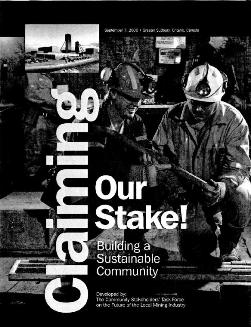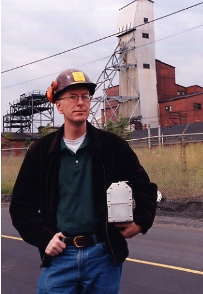 In the summer of 2006, Greater Sudbury residents were extremely concerned that the local community was being overlooked during the foreign takeovers of Inco and Falconbridge. The then Mayor David Courtemanche asked me to produce a policy document that outlined the community’s concerns about the impending loss of Sudbury’s two iconic Canadian miners to foreign ownership.
In the summer of 2006, Greater Sudbury residents were extremely concerned that the local community was being overlooked during the foreign takeovers of Inco and Falconbridge. The then Mayor David Courtemanche asked me to produce a policy document that outlined the community’s concerns about the impending loss of Sudbury’s two iconic Canadian miners to foreign ownership.
Many community stakeholders were interviewed and an aggressive first draft was delivered to Mayor Courtemanche. To the concern of some of the stakeholders, myself included, the final version was less bold and assertive than originally planned.
However, it was an honour to play a key role in the production and writing of “Claiming Our Stake! Building a Sustainable Community” during this pivotal time in the mining history of the Sudbury Basin.
Stan Sudol
Executive Summary
“There is an international bidding war taking place in the Canadian mining sector, and Greater Sudbury is at the front lines. What happens here in the next few months will re-define the Canadian mining industry and this community for, the next century.
Mayor Courtemanche, Greater Sudbury (June, 2006)
Over the past year, the global business media and Canadians have been captivated by one of the most expensive and bitter takeover battles in the history of world mining. Falconbridge Limited has been taken over by Swiss-based Xstrata PLC and, while the final ownership of lnco Limited has yet to be decided, these events will permanently change the course and ownership of the country’s resource sector.
We are also witnessing one of the largest economic transformations in the history of mankind. China, India and many other developing countries are rapidly urbanizing and industrializing their societies, and mineral commodities and mining expertise are an essential part of this change. The world is entering the start of commodity super-cycle that will last for decades and create enormous prosperity.
Our community has an enormous stake in the outcome of this international bidding war. Our stake is over 100 years of mining behind us, billions of dollars of ore beneath us, and enormous opportunities in front of us. Greater Sudbury is the historic heart and soul of the global nickel industry. Most geologists and mine industry experts agree that there is still another hundred years of life to this enormous trillion dollar mining camp.
Greater Sudbury is home to one of the greatest mining camps that the world has ever known. The Sudbury Basin is the richest mining district in North America and among the top ten most significant globally. In a world full of geo-political uncertainty, Sudbury’s strategic nickel resources ensure a secure environment for the billions of dollars needed to increase production. Nickel has become the metallic version of oil.
Read more

























 I am an Inco brat. I was born and raised in the shadows of those tall industrial smokestacks that tower over the city of Sudbury, Canada. In the days when I turned 18 in the late 1970s, if you didn’t go to university, then it was almost a rite of passage to work for “Mother Inco,” as it was affectionately (or derisively) known.
I am an Inco brat. I was born and raised in the shadows of those tall industrial smokestacks that tower over the city of Sudbury, Canada. In the days when I turned 18 in the late 1970s, if you didn’t go to university, then it was almost a rite of passage to work for “Mother Inco,” as it was affectionately (or derisively) known.